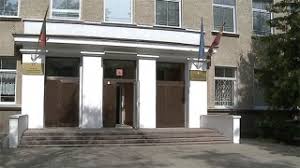Legislation, Lithuania
International Internet Magazine. Baltic States news & analytics
Friday, 19.04.2024, 20:45
Ex-Soviet officers found guilty of war crimes in absentia in Jan 13 case in Lithuania
 Print version
Print version |
|---|
A three-judge panel found Yazov guilty in absentia and sentenced him to ten years in prison. Prosecutors had demanded life imprisonment for the 94-year-old former defense minister and another five defendants.
Vladimir Uskhopchik, the Soviet Army's former Vilnius garrison commander, was sentenced to 14 years in prison, and Mikhail Golovatov, a former KGB officer, received 12 years.
A total of 67 citizens of Russia, Ukraine and Belarus were handed prison sentences ranging from four to 14 years.
The majority of them were sentenced in absentia as Russia and Belarus refused to extradite them.
Only two former Soviet officers, including Yuri Mel, who was detained in Lithuania in 2014, and Vilnius resident Gennady Ivanov, stood trial in person.
Mel was sentenced to seven years in prison, but taking into account his pre-trial detention time, he might be released in two years.
Ivanov was sentenced to four years in jail but he will remain free until the ruling comes into force as the court did not ordered his arrest.
Ivanov's defense lawyer and those representing several other defendants said they would appeal the judgement.
The Vilnius Regional Court said the sentences were based on international law, the Lithuanian Constitutional Court's rulings and the country's Criminal Code.
The court qualified the events of January 1991 as an act of aggression by the Soviet Union against Lithuania.
"From the point of view of international law, the Republic of Lithuania was an occupied state between 1940 and 1990. (...) In 1990-1991, the USSR continued the aggression it started in Lithuania in 1940," it said.
According to the court, Soviet troops' actions in Vilnius in January 1991 amounted to crimes against humanity as defined in international law.
"The criminal acts committed by the defendants, were considered, at the time they were committed, as crimes under the general principles of law universally recognized by civilized nations," it said, dismissing defense arguments that national law did not envisage responsibility for crimes against humanity back in 1991.
The Soviets targeted civilians in their attacks on civilian buildings in Vilnius in January 1991, the court said.
"Decisions on the number of troops and the composition of the units involved in the operation were made taking into account the number of civilians defending the buildings. Obviously, civilian casualties were planned and sought by deploying military equipment, including tanks, APCs (and) an anti-aircraft defense system, etc., (and) equipping soldiers with combat ammunition (...), explosive devices and other instruments designed to harm people for storming the selected important buildings," the judgment reads.
The court underlined that the killings of civilians during the military operation "were not accidental crimes", but were part of "a large-scale and systematic" crackdown on civilians in line with the Soviet policies "aimed at keeping Lithuania within the Soviet Union".
The court dismissed civil lawsuits for compensation for non-pecuniary damage filed by two victims in the case.
It did not examine a lawsuit by the Prosecutor General's Office claiming over 11 million euros in damages to the Lithuanian state.
The judgement can be appealed to the Lithuanian Court of Appeals.
Almost 700 individuals were named victims and around 1,000 people testified as witness in the case.
Russia rejected Lithuania's request to question former Soviet leader Mikhail Gorbachev in the case.
Fourteen civilians were killed and hundreds more were wounded when the Soviet troops stormed the TV Tower and the Radio and Television Committee building in Vilnius in the early hours of Jan. 13, 1991.
The Soviet Union used military force to overthrow the legitimate government of Lithuania, which declared independence on March 11, 1990.








 «The Baltic Course» Is Sold and Stays in Business!
«The Baltic Course» Is Sold and Stays in Business!

